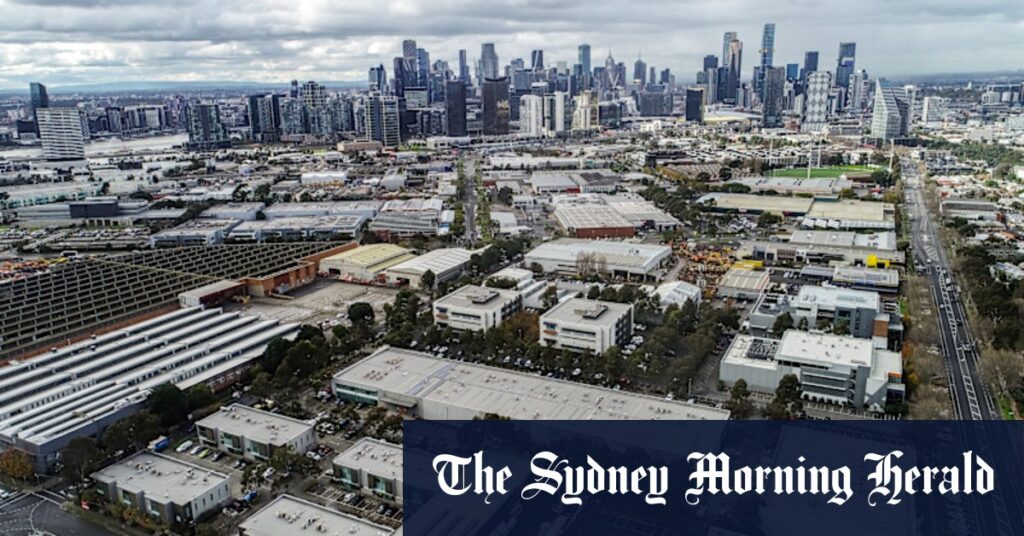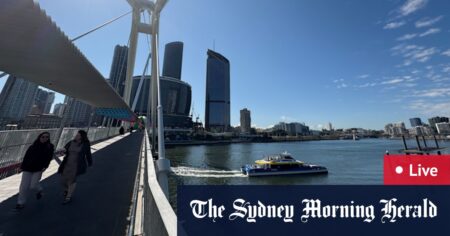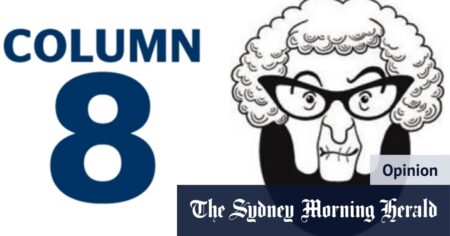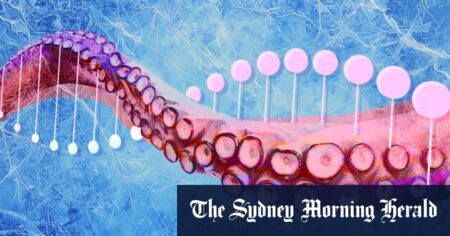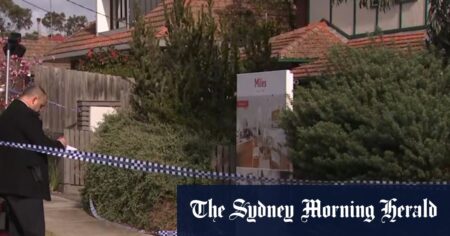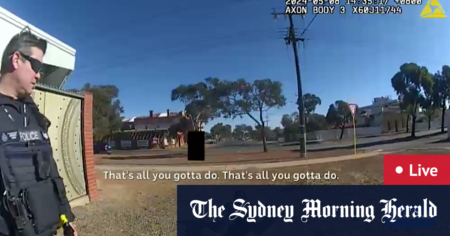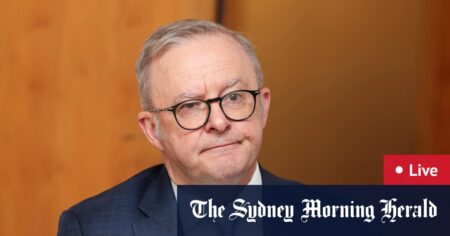“It would go along way to support the viability of projects in the area,” Temlett said.
Fishermans Bend was rezoned by then-Liberal planning minister Matthew Guy, with the 480-hectare peninsula south-west of the CBD set to become Australia’s largest urban renewal project. State government plans envisage the former industrial precinct being redeveloped into a suburb home to 80,000 residents and another 80,000 workers by 2050.
The Fishermans Bend Framework plan, released by the Andrews government in 2018, plotted two tram lines servicing the area via a new bridge extending from Collins Street in Docklands across the Yarra River. At the time, consultancy firm AECOM put the likely cost of the tram lines at $1 billion in 2018.
Loading
The framework also shows the area would eventually be serviced by the Melbourne Metro – a proposed underground train line stretching from Clifton Hill to Newport – which the Andrews and Allan governments have not committed to while they focus on their flagship $34.5 billion Suburban Rail Loop East project.
Urban Development Institute of Australia Victoria CEO Linda Allison said Fishermans Bend had tremendous potential as a site that could deliver new housing and help address the housing crisis, but developers wanted certainty about when key infrastructure would be delivered.
“The transport infrastructure is an integral part of Fishermans Bend’s success,” she said.
Loading
“For the workforce, there needs to be good connectivity, and also for people to make the move into an area like Fishermans Bend they want to see they’ve got good access to transport.
“We’ve seen plenty of examples in Australia and internationally of urban renewal precincts that are really transformative and so it would be great to see it flourish but transport is a key part.”
Allison said a relatively high developer contribution of $34,635 per dwelling in Fishermans Bend to fund local infrastructure improvements was another factor slowing down apartment developments.
Property Council Victoria executive director Cath Evans said Fishermans Bend’s success depended on timely investment in transport infrastructure.
“Particularly, the delivery of the long-promised tram connection, which will ensure the precinct is accessible, connected, and attractive for education, industry, and residential development alike,” she said.
The 2021-22 state budget allocated $15 million to progress planning work for the tram, but those plans have never been publicly released.
The spokesperson for the Allan government said it had already delivered almost 1500 additional bus services every week to Fishermans Bend and would continue to work with the University of Melbourne as a partner in the area’s Innovation Precinct.
Loading
“We’re delivering a well-connected and carefully planned precinct at Fishermans Bend, with connections to roads and new public spaces,” they said.
In June, a Victorian Auditor-General’s Office audit uncovered major planning delays in delivering key projects in Fishermans Bend, including schools, bike lanes and the tram line. The tram line had taken “a considerable amount of time to plan, and its level of priority as a key transport project for Fishermans Bend remains unclear”, the audit found.
The Morning Edition newsletter is our guide to the day’s most important and interesting stories, analysis and insights. Sign up here.
Read the full article here







